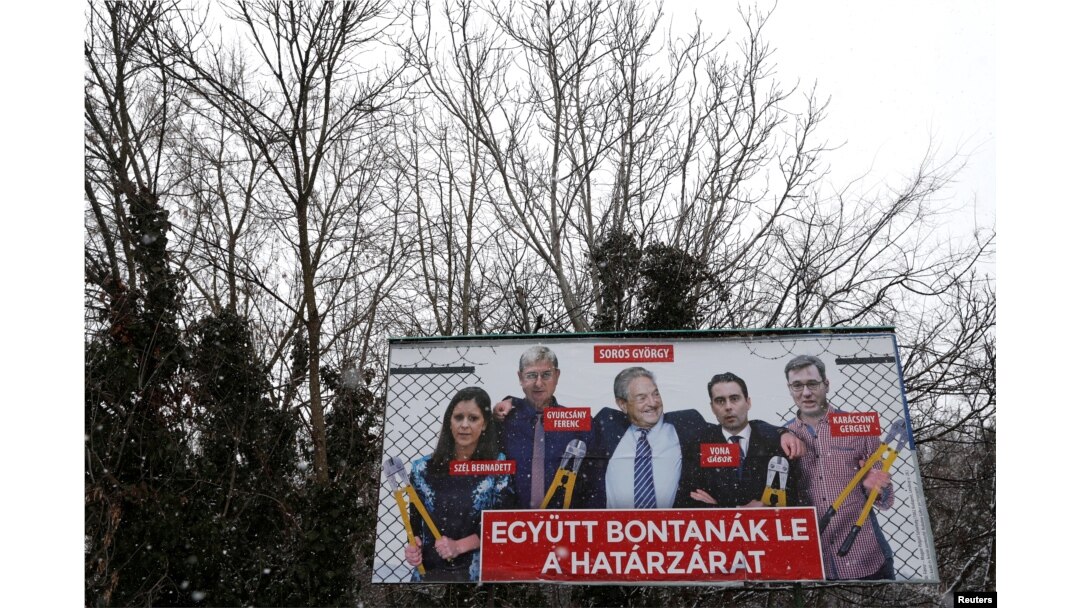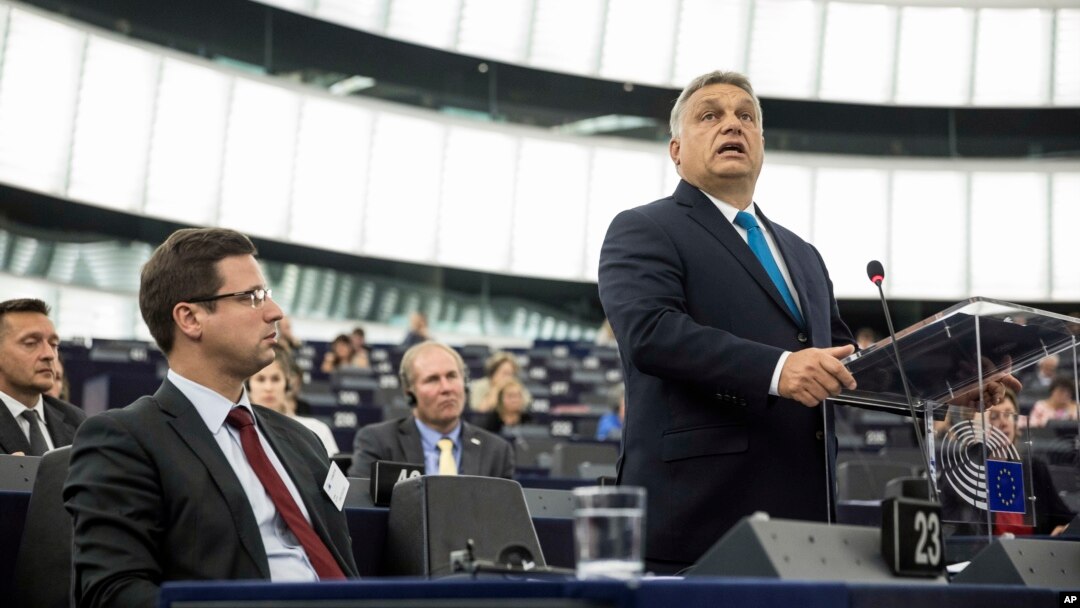Hungarian Prime Minister Viktor Orban told the European Parliament on Tuesday he would not bow to EU "blackmail" as lawmakers prepared to vote on whether to punish Budapest for eroding democracy.
Since sweeping to power in 2010, Orban has pressured Hungary's courts, media and non-governmental groups, as well as refusing to take in asylum seekers arriving in Europe. Though the European Union has often protested, it has largely failed to stop what his critics decry as his growing authoritarianism.
It remains far from clear whether the 751-strong European Parliament will be able to muster in Wednesday's vote the two-thirds majority needed to pass the censure motion, which accuses Hungary of persistently breaching core EU values.
If approved, the motion would theoretically open the way for sanctions such as a suspension of Hungary's voting rights in the EU - but in practice that is sure to be blocked by Orban's ally, the nationalist government in Poland.
Addressing directly the EU lawmakers in Strasbourg, Orban cast Wednesday's vote as an act of revenge for his refusal to host refugees who have fled to Europe from the Middle East and North Africa since 2015.
"Hungary will not accede to this blackmail. If need be, we will stand up to you," said Orban, whose right-wing Fidesz party was re-elected with a landslide majority last April.
"Hungary is going to be condemned (by this motion) because the Hungarian people have decided that their country is not going to be a country of migrants," Orban said, drawing applause from the euroskeptic, far-right lawmakers in the assembly.
Orban has said the mostly Muslim refugees pose an existential threat to Europe's Christian civilization. He has also waged a vociferous campaign against Hungarian-born, Jewish American billionaire philanthropist George Soros and the liberal causes he backs in formerly-communist eastern Europe.

FILE - A government billboard shows George Soros (C) and opposition party leaders in Budapest, Hungary, Feb. 20, 2018. The billboard reads: 'They would dismantle the border fence together'.
Broad criticism
The motion against Orban's Hungary goes well beyond the migration issue.
The deputy head of the European Commission, Frans Timmermans, said on Tuesday he shared its authors' concerns about "fundamental rights, corruption, the treatment of Roma and the independence of the judiciary" in Hungary under Orban.
Former Belgian prime minister Guy Verhofstadt, a leading liberal, said Hungary would never have been allowed to join the EU in 2004 had it been back then as it has now become under Orban. The group of leftists and greens in the assembly said "Orban's authoritarian moves must be curbed".
Dutch lawmaker Sophie In't Veld urged the EU to consider cutting generous subsidies to Hungary, asking: "Why are we giving Mr Orban 87 million euros a week in order to destroy the European Union?" Even Orban's fellow migration hardliner, Austria's Chancellor Sebastian Kurz, unexpectedly said his party's five European lawmakers would vote against Budapest.
"We believe that there can be no compromises on the rule of law and democracy," Kurz told ORF television.
But Italy's anti-immigration Interior Minister Matteo Salvini said his League party's six EU lawmakers would support Oran in the Wednesday vote.
The parties of Kurz and Orban both belong to the biggest faction in the European Parliament, the conservative European People's Party (EPP), which also includes lawmakers from the party of German Chancellor Angela Merkel.
The EPP membership has muted EU reaction to Orban's policies over the years and the big question mark is what the group's 217 members will now do.
The vote represents a particular challenge for EPP head Manfred Weber, a German, since he announced his bid for the presidency of the EU's executive Commission next year.
On Tuesday Weber said the EU might need to consider launching the sanctions procedure, under Article 7.1 of the Lisbon Treaty, if Budapest did not address the criticisms.
But Weber, a close ally of Merkel, also spoke of "building bridges" with Hungary and noted the EU's failure to take action in a similar rule-of-law case against Poland.


